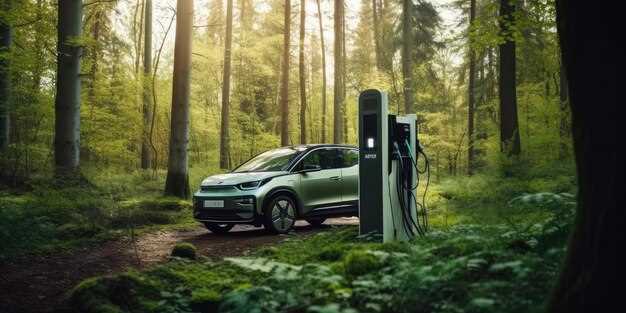Most fuel-efficient Jeep models in 2025


As the automotive industry shifts towards sustainability, fuel economy has become a central focus for consumers looking to purchase a new vehicle. Jeep, a brand synonymous with adventure and rugged terrain, is no exception. In 2025, several Jeep models stand out for their impressive fuel efficiency without compromising the brand’s renowned off-road capabilities.
Fuel efficiency in a Jeep not only enhances the driving experience but also aligns with increasing environmental concerns. With the development of advanced technologies and hybrid options, Jeep has successfully integrated economy and performance. This allows drivers to explore nature while minimizing their carbon footprint.
In this article, we will delve into the most fuel-efficient Jeep models for 2025, highlighting their specifications, features, and what makes them an excellent choice for those prioritizing fuel economy. Whether you’re commuting through the city or navigating challenging landscapes, these Jeep models promise to deliver both efficiency and the drive of a lifetime.
Top Jeep SUVs with Best MPG Ratings

As the automotive industry evolves, fuel economy becomes a vital consideration for many drivers. Jeep has been refining its lineup to meet the demands for efficiency while maintaining the rugged capabilities that define the brand. Among the 2025 models, several Jeep SUVs stand out for their excellent MPG ratings, combining performance with a focus on fuel economy.
The 2025 Jeep Compass exemplifies this trend, offering an impressive balance of power and efficiency. With its 2.4-liter engine, the Compass achieves fuel efficiency ratings up to 30 MPG on the highway, making it an excellent choice for both city commuting and long road trips.
Another noteworthy model is the Jeep Cherokee, which features a turbocharged 2.0-liter engine. This SUV not only provides ample power but also delivers enhanced fuel economy, reaching up to 29 MPG on the highway. The Cherokee’s sophisticated design allows it to tackle various terrains while keeping fuel consumption in check.
The Jeep Wrangler, a classic among off-road enthusiasts, has also made strides in fuel efficiency. The 2025 Wrangler offers a hybrid variant that boasts a combined MPG rating that competes with more traditional SUVs. This model redefines what it means to be an environmentally conscious off-roader without sacrificing the adventurous spirit that Jeep is known for.
Lastly, the 2025 Jeep Grand Cherokee represents a significant leap in fuel economy for larger SUVs. Equipped with efficient engine options, this model can achieve up to 27 MPG on the highway. Its spacious interior and advanced technology make it a perfect choice for families looking for comfort alongside economic performance.
In summary, Jeep continues to innovate with models that offer impressive fuel efficiency without compromising their renowned capability. As we move towards a more eco-conscious future, these SUVs prove that it is possible to have both economy and adventure in one package.
Comparison of Hybrid and Traditional Jeep Models
As the automotive industry evolves, the demand for fuel-efficient SUVs has increased significantly. Jeep, a brand known for its rugged vehicles, has adapted to this trend by introducing hybrid models alongside traditional gasoline-powered options. The primary distinction between hybrid and traditional Jeep models lies in their fuel economy and performance characteristics.
Hybrid Jeeps combine an electric motor with a conventional engine, resulting in improved fuel efficiency. These models are designed to reduce emissions while offering the capability expected from an SUV. Users often experience better mileage in city driving conditions due to regenerative braking and the ability to operate on electric power alone during low-speed maneuvers.
On the other hand, traditional Jeep models rely solely on internal combustion engines. While they may offer robust performance and towing capabilities, their fuel economy tends to lag behind hybrid counterparts. Enthusiasts appreciate the raw power and off-road prowess of these vehicles, but they may face higher fuel costs, especially in urban environments where stop-and-go traffic prevails.
When comparing the two types, potential buyers need to evaluate their driving habits and preferences. If fuel economy is a priority, particularly for daily commuting, hybrid models present a compelling choice. However, those who prioritize off-road capabilities and towing capacity might still lean towards traditional options despite their lower fuel efficiency.
In conclusion, the choice between hybrid and traditional Jeep models ultimately boils down to the balance of economy, performance, and intended use. As Jeep continues to innovate, consumers can expect a diverse range of options to suit various lifestyles without compromising on the brand’s signature adventurous spirit.
Cost Savings and Environmental Impact of Fuel Economy

The rising cost of fuel has made fuel economy a critical consideration for consumers looking to purchase SUVs, particularly Jeep models. Higher fuel efficiency directly translates to lower operating costs, allowing owners to save substantially over the life of their vehicle. With the imminent release of the most fuel-efficient Jeep models for 2025, potential buyers can expect to see savings in their monthly budgets due to reduced fuel expenses.
Investing in fuel economy features not only alleviates financial pressure but also fosters a more sustainable future. As Jeep embraces advanced technologies to enhance the fuel efficiency of their SUVs, they contribute to reducing carbon emissions, which is crucial for combating climate change. The automotive industry, especially in the SUV segment, significantly influences environmental health, and more efficient models will play a pivotal role in decreasing the overall carbon footprint.
Moreover, the benefits of choosing a fuel-efficient Jeep extend beyond personal savings. Consumers are increasingly aware of their ecological impact, and by opting for models that prioritize economy, they not only make a financially sound decision but also align with environmentally responsible practices. This conscious choice can motivate automakers to continue developing innovative solutions that combine performance with sustainability.
In summary, embracing fuel economy in SUVs, particularly in 2025 Jeep offerings, not only leads to significant cost savings for consumers but also plays an essential role in promoting environmental sustainability. The dual impact of financial and ecological benefits emphasizes the importance of choosing vehicles that prioritize efficient fuel consumption.
